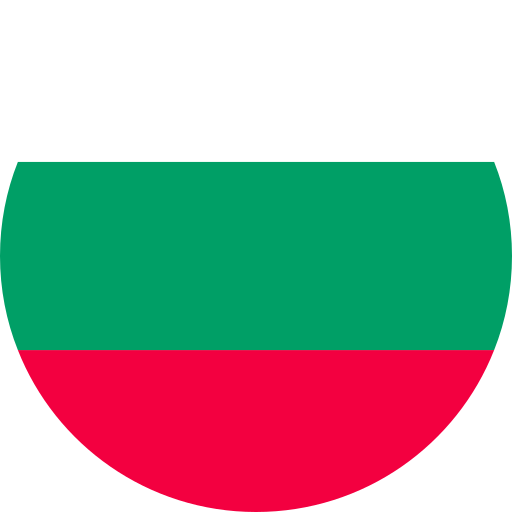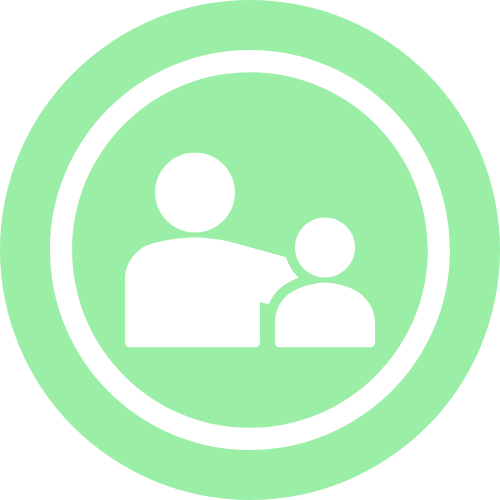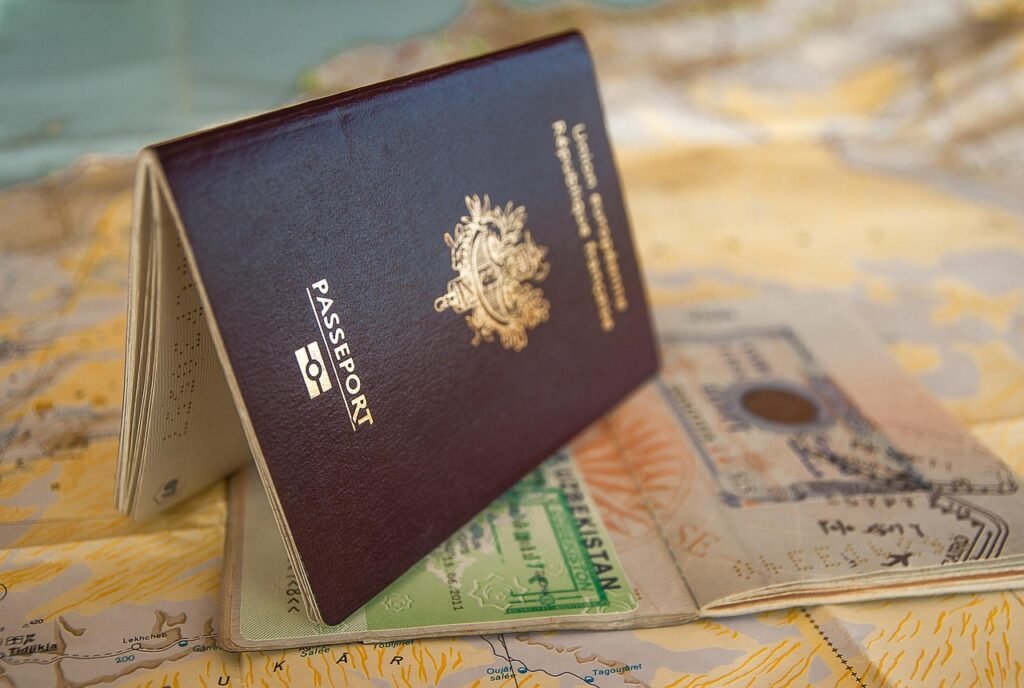Why Study in Bulgaria?
Bulgaria offers affordable, quality education in a country rich with cultural heritage and history. With a growing number of English-taught programs, especially in medicine, engineering, business, and IT, Bulgarian universities are becoming an attractive choice for international students. Tuition fees are generally lower than in many other EU countries, and the cost of living is very affordable.
Students in Bulgaria benefit from solid academic programs, modern campuses, and a welcoming international student community. Bulgaria’s location in Southeast Europe provides easy access to travel across Europe and neighboring regions. Studying in Bulgaria opens up career opportunities within the EU, with various post-study residence and work options for graduates aiming to build their future in Europe.

- Study in
Bulgaria
Study Programs in Bulgaria
Study Programs in Bulgaria for International (including Bangladeshi) Students:
Schooling / Primary & Secondary Education
Bulgaria offers public, private, and international school options. International and bilingual schools follow curricula such as the British, American, or IB (International Baccalaureate) systems. Public education is free for residents, while international schools charge tuition fees.
Diploma & Vocational Programs
Bulgaria provides various diploma and vocational training programs through technical and vocational secondary schools and colleges. These focus on practical, career-oriented skills in fields like mechanical engineering, IT, tourism and hospitality, healthcare, and business services.
Bachelor’s Degrees
Bulgarian universities offer a wide range of undergraduate programs, many available in English. Popular fields include medicine, engineering, business administration, computer science, and international relations. Degrees follow the Bologna system and are recognized across Europe.
Master’s Degrees
Bulgaria is known for strong master’s programs, particularly in medicine, public health, engineering, economics, agriculture, and applied sciences. Many universities offer affordable English-taught master’s degrees, attracting international students worldwide.
PhD Programs
Doctoral education in Bulgaria meets EU academic standards and is offered by leading universities. PhD candidates can conduct research in diverse disciplines such as life sciences, technology, social sciences, and humanities. Scholarships and research funding are available for eligible applicants.

- Study in
Bulgaria
Step-by-Step Guide
🇧🇬 Step 1: Research Universities and Programs
Explore Bulgarian universities offering English-taught or Bulgarian-medium programs. Look for institutions that align with your academic background and career goals. Popular fields include medicine, engineering, business, computer science, and social sciences.
🇧🇬 Step 2: Check Eligibility Requirements
Review academic entry criteria, language requirements (IELTS/TOEFL for English programs or Bulgarian language exams if required), minimum GPA, and any program-specific prerequisites.
🇧🇬 Step 3: Prepare and Submit Applications
Apply directly through the university’s website or through Bulgaria’s online application platforms if available. Submit required documents such as academic transcripts, CV, motivation letter, recommendation letters, and language test results. Ensure translations into English or Bulgarian if needed.
🇧🇬 Step 4: Explore Scholarships & Funding Options
Check for scholarships like Erasmus+, Bulgarian government scholarships, and university-specific grants. Many Bulgarian universities offer financial aid for international students, especially from developing countries.
🇧🇬 Step 5: Receive Offer and Accept Admission
Once accepted, follow the university’s instructions to confirm your admission. Pay any required tuition deposit or administrative fees to secure your place.
🇧🇬 Step 6: Apply for Student Visa (Type D)
Apply for a Bulgarian student visa at the Embassy of Bulgaria in Dhaka. Submit your admission letter, proof of financial means (covering tuition and approximately €500–€700/month living expenses), accommodation confirmation, health insurance, police clearance, and medical certificate.
🇧🇬 Step 7: Arrange Accommodation and Insurance
Secure your student housing or private accommodation in Bulgaria. Purchase valid health insurance that complies with visa requirements and covers your entire stay.
🇧🇬 Step 8: Plan Travel and Arrival
After receiving your visa, book your flight. Keep all important documents (visa, admission letter, accommodation, financial proof) ready for border control. Attend any university pre-departure briefings if available.

- Study in
Bulgaria
🇧🇬 Average Tuition Fees in Bulgaria (2025)
Primary & Secondary School (International Schools)
€3,000 – €10,000 per year
International and bilingual schools in Bulgaria offer British, American, or IB curricula. Public schools are free for residents but teach primarily in Bulgarian, which may not suit non-Bulgarian-speaking children.
Bachelor’s Degree (Public Universities)
€1,000 – €4,000 per year
Tuition fees vary by university and program. Humanities and social sciences programs tend to be more affordable, while engineering, IT, and medicine typically have higher fees.
Master’s Degree (Public Universities)
€1,500 – €5,000 per year
Bulgaria offers relatively affordable master’s programs compared to Western Europe. Many English-taught options are available in fields like business, engineering, IT, and public administration.
PhD Programs (Public Universities)
€800 – €3,000 per year
PhD programs are research-focused, with some scholarships and funding opportunities available for qualified candidates.
Private Universities / Business Schools (All Levels)
€4,000 – €12,000+ per year
Private institutions and business schools generally charge higher tuition fees. MBA and specialized programs may exceed €15,000 per year depending on the school.
Visa Categories for Study in Bulgaria

Type D Long-Term Visa for Study
Issued to foreign nationals who plan to study in Bulgaria for more than 90 days (usually for a full academic year or degree program).

Short-term (Type C) Schengen visa
May be applicable, but this is not typically for full academic programs.

Visa Application Checklist
 Bulgaria Student Visa Application Checklist (Bangladesh)
Bulgaria Student Visa Application Checklist (Bangladesh)
Completed Application Form
Fill out and sign the National Visa (Type D) application form available on the Bulgarian Embassy or Consulate website.
Valid Passport
Your passport must be valid for at least 3 months beyond your intended stay in Bulgaria and have at least two blank pages.
Admission Letter
Official letter of acceptance from a recognized Bulgarian university or higher education institution confirming full-time enrollment in an accredited program.
Proof of Financial Means
Evidence you can support yourself financially during your stay, which may include:
-
Bank statements (typically showing funds of about €6,000 or more for one year)
-
Scholarship award letters
-
Financial guarantee from a parent or sponsor
Proof of Accommodation
Documents showing your place of residence in Bulgaria, such as university dormitory confirmation, rental agreement, or host invitation letter.
Passport Photos
Two recent passport-sized photos meeting Bulgarian visa photo specifications (biometric format).
Travel Itinerary
Tentative flight booking or travel plan (optional but recommended).
Health Insurance
Proof of valid health insurance covering your entire stay in Bulgaria, meeting Schengen visa requirements.
Academic Certificates and Transcripts
Copies of previous educational qualifications (diplomas, transcripts, certificates) relevant to your chosen study program.
Language Proficiency Proof
If required by your university, submit proof of English proficiency (IELTS/TOEFL) or Bulgarian language skills depending on the language of instruction.
Police Clearance Certificate
Certificate of good conduct issued by Bangladesh Police, translated into English or Bulgarian and legalized if necessary.
Medical Certificate
Health certificate from a registered physician stating you are in good health and free from contagious diseases (translated if not in English).
Parental Consent (if under 18 years old)
Notarized permission from parents or legal guardians, translated into English or Bulgarian.
Payment Receipt of Visa Fee
Proof of visa fee payment (approx. €60 or equivalent in BDT).
Biometric Data Submission
Schedule and complete biometric data collection at the Bulgarian Visa Application Centre or the designated VFS Global center in Dhaka.
Additional Notes:
-
All documents not in English or Bulgarian must be officially translated.
-
Originals may be requested during your visa interview.
-
It’s recommended to carry photocopies of all submitted documents according to embassy or VFS guidelines.

- Study in
Bulgaria
Job and PR Pathways After Study
🇧🇬 Job and PR Pathways After Study in Bulgaria
Post-Study Job Search Residence Permit:
After graduating from a Bulgarian university, international students can apply for a residence permit to stay in Bulgaria for up to 12 months to seek employment or start a business related to their field of study.Employment Opportunities:
Bulgaria’s economy offers job prospects in sectors such as IT, engineering, manufacturing, tourism, finance, and outsourcing/shared service centers (SSCs). English-speaking jobs are often available in major cities like Sofia, Plovdiv, and Varna. Knowledge of Bulgarian language can improve job prospects and integration.Work Permit (Residence Permit for Employment):
Once you receive a job offer, you can apply for a residence permit for employment purposes. The employer usually handles the work permit process, which allows you to work legally in Bulgaria. Self-employment or entrepreneurship permits are also available for those starting their own business.Permanent Residency:
After 5 years of continuous legal residence in Bulgaria (including your study period), you may apply for permanent residency, which provides broader rights for living and working in the country without needing to renew residence permits frequently.Pathway to Bulgarian Citizenship:
You may apply for Bulgarian citizenship after 5 years of permanent residence (usually after obtaining permanent residency). Applicants must meet requirements including good character, knowledge of the Bulgarian language, and familiarity with the country’s history and constitution, typically assessed via an interview or test.

- Study in
Bulgaria
Our Support During the Process
We’re with you at every step — from your first consultation to settling into life in Bulgaria and beyond, ensuring a smooth, informed, and successful journey.
Personalized consultation at every stage — We take the time to understand your academic goals, financial background, and personal preferences to guide you toward the best-fit study options in Bulgaria.
One-on-one support for admission, visa, and travel — Receive dedicated assistance with university applications, document preparation, Bulgarian student visa submissions, and travel arrangements.
Always accessible — Connect with us via call, WhatsApp, email, or in person — whichever communication method works best for you.
Regular updates, reminders, and document reviews — Stay on track with timely updates, important deadline alerts, and expert reviews of your application documents to reduce errors or delays.
Post-arrival check-ins and alumni mentoring — We continue our support even after you arrive in Bulgaria, offering guidance and linking you with alumni who have successfully settled there.
Support for job search and PR planning — Get tailored advice on finding jobs in Bulgaria, preparing your CV/resume, and exploring post-study work permits and long-term residency options.





